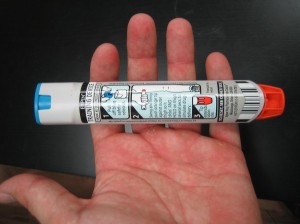Individuals who have wheat allergy can suffer from a number of symptoms. One of the symptoms that can manifest is fatigue. The best way to determine if an individual is indeed allergic to wheat is to undergo testing either a blood test or skin prick test. In a blood test, it checks the presence of immunoglobulins while a skin prick test involves the introduction of the allergen into the skin. If a localized reaction occurs, it simply means that the individual has wheat allergy. By enrolling in a first aid course, you will learn how to properly manage the symptoms of an allergic reaction to wheat.
The fatigue that occurs due to wheat allergy can be linked to severe inflammation in the sinus cavity. When an individual experiences an allergic reaction to wheat, the body produces immunoglobulin E antibodies to combat the proteins present in wheat. Take note that this action initiates the mast cells to produce histamine in the soft tissue all over the body. The histamine that is released in the nasal tissue will trigger swelling and congestion of the sinuses. This congestion can lead to sinus pressure, headaches, pain all over the head and postnasal drip. The pressure on the rear part of the eyes can cause the individual to feel fatigue.

Avoiding the allergen
An effective way to manage wheat allergy is to avoid any wheat products or those that contain wheat. The consumption of even a small amount can start an allergic response. If the individual who has wheat allergy consumes wheat, he/she is at risk for developing a severe allergic reaction or anaphylactic shock. The individual must avoid eating anything that contains wheat such as farina, wheat bran, bread crumbs, couscous, bulgur, emmer, cereal extract, spelt and flour.
What is celiac disease?
If the individual has not been diagnosed by a doctor, he/she might have celiac disease. It is important to note that fatigue is considered as a usual symptom of celiac disease. The condition is described as hypersensitivity to a protein present in wheat, rye and barley which is called as gluten. Take note that this condition is different from wheat allergy since it does not involve the generation of immunoglobulin E antibodies, but the immune system causes lasting damage to the digestive tract. The consumption of wheat products can lead to severe complications such as malnourishment and excess weight loss.
Treatment
If the individual unintentionally consumes wheat, the fatigue experienced by the individual can be treated by providing antihistamines and decongestants. The antihistamines work by reducing the amount of histamine present in the body in order to provide relief to the symptoms. As for the decongestants, these medications will reduce the swelling in the sinuses, thus restoring the normal breathing of the individual via the nose while at the same time minimizing the sinus pain and pressure.
